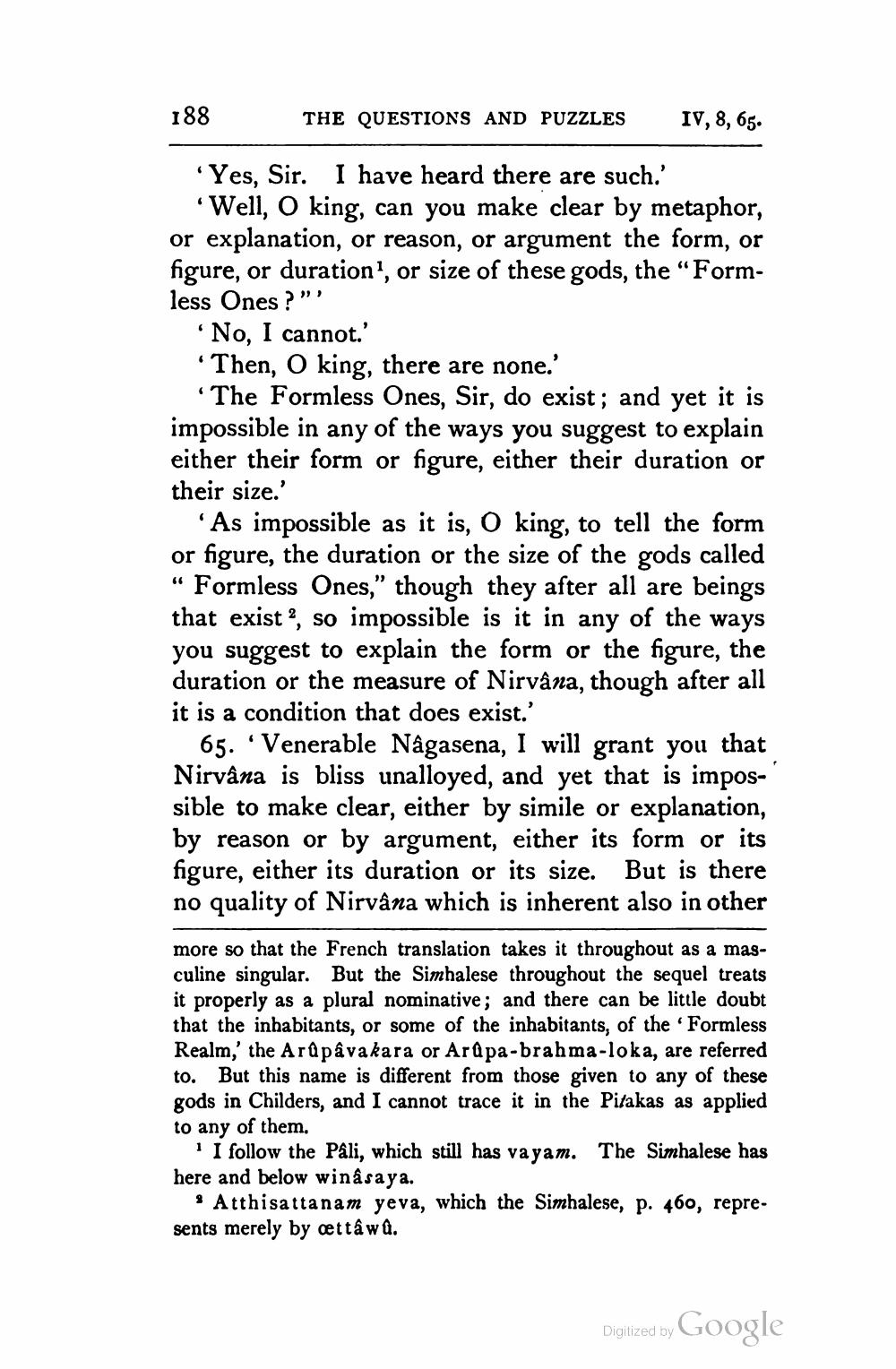________________
188
THE QUESTIONS AND PUZZLES
'Yes, Sir. I have heard there are such.'
'Well, O king, can you make clear by metaphor, or explanation, or reason, or argument the form, or figure, or duration1, or size of these gods, the "Formless Ones?"
'No, I cannot.'
IV, 8, 65.
Then, O king, there are none.'
'The Formless Ones, Sir, do exist; and yet it is impossible in any of the ways you suggest to explain either their form or figure, either their duration or their size.'
66
'As impossible as it is, O king, to tell the form or figure, the duration or the size of the gods called Formless Ones," though they after all are beings that exist, so impossible is it in any of the ways you suggest to explain the form or the figure, the duration or the measure of Nirvâna, though after all it is a condition that does exist.'
65. Venerable Nâgasena, I will grant you that Nirvana is bliss unalloyed, and yet that is impossible to make clear, either by simile or explanation, by reason or by argument, either its form or its figure, either its duration or its size. But is there no quality of Nirvâna which is inherent also in other
more so that the French translation takes it throughout as a masculine singular. But the Simhalese throughout the sequel treats it properly as a plural nominative; and there can be little doubt that the inhabitants, or some of the inhabitants, of the 'Formless Realm,' the Arûpâvakara or Arûpa-brahma-loka, are referred to. But this name is different from those given to any of these gods in Childers, and I cannot trace it in the Pitakas as applied to any of them.
1 I follow the Pâli, which still has vayam. The Simhalese has here and below winâsaya.
Atthisattanam yeva, which the Simhalese, p. 460, represents merely by cettâwû.
Digitized by
Google




